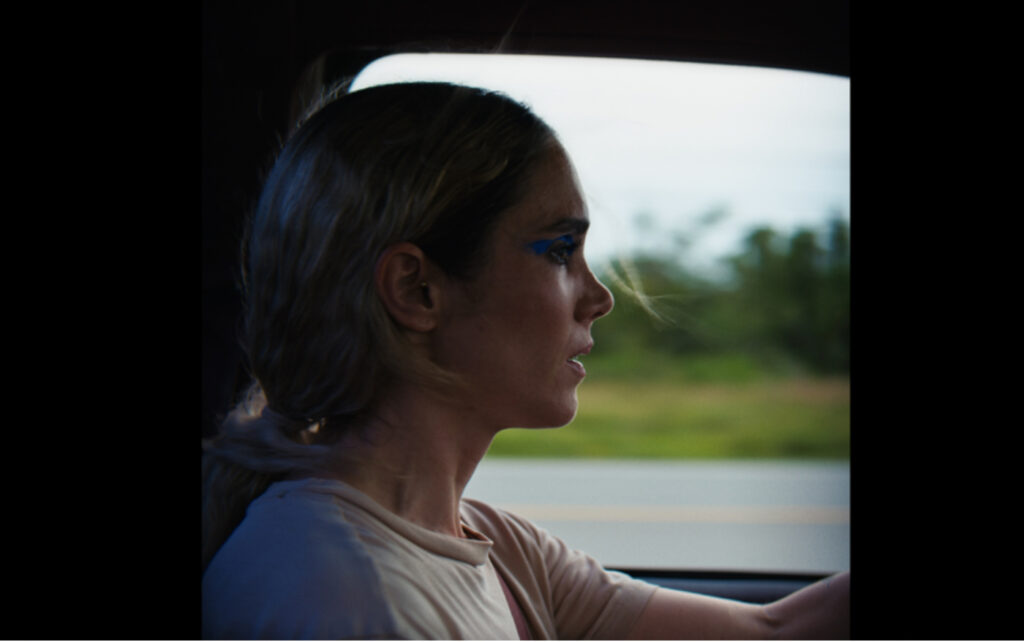At the 2025 Tribeca Film Festival, amid cinematic declarations of grandeur and bombast, a small film whispered its way into the hearts of viewers. Charliebird, the feature directorial debut of Libby Ewing, does not come with thunder. It arrives on trembling feet, carrying a guitar case, a sadness too heavy for its size, and a question it refuses to answer easily: how do we keep singing in the face of silence?
Starring Samantha Smart, who also penned the screenplay, the film unfolds as a tender character study of a pediatric music therapist coping with unbearable grief while trying to bring solace to others. Told with lyricism and restraint, Charliebird offers a rare blend of artistic discipline and emotional nakedness—a quiet triumph of indie filmmaking that challenges, disarms, and ultimately embraces its audience.
The Story: Between Grief and Grace
Charlotte “Charlie” Byrd (Samantha Smart) is a woman barely stitched together. By day, she works at a Los Angeles children’s hospital, strumming lullabies to bone-thin children fighting impossible battles. Her work requires a kind of radical softness—meeting each child where they are, tuning her voice to their needs, singing not for applause but for presence.
But at night, Charlie returns to a home haunted by absence. We learn early on—through delicate, non-linear fragments—that Charlie recently lost her younger sister, Lucy, to suicide. The film does not dramatize this event with flashbacks or exposition. Instead, Lucy’s presence lingers like a song half-remembered: voicemail snippets, a locked bedroom door, an unopened guitar case in the corner of the living room.
The core of Charliebird is Charlie’s internal war: how do you bring hope to dying children when you yourself no longer believe in survival? As the film progresses, Charlie’s sessions with patients become increasingly strained. She begins to cancel appointments, lash out at coworkers, and retreat from her small circle of support. The hospital, once a place of service, begins to mirror her own despair.
Yet amid the unraveling, connections emerge. A terminally ill patient named Marisol (played with startling maturity by newcomer Zoe Hernandez) insists on learning to write a song before she dies. And a quietly attentive nurse named David (Michael Cassadine) offers Charlie more than sympathy—he offers patience. These threads, though fragile, begin to reweave Charlie into the world of the living.
Direction: Libby Ewing’s Intimate Eye
Director Libby Ewing, best known for her work as an actor in indie dramas and shorts, brings a theater-rooted intimacy to her cinematic debut. Her camera does not observe Charlie—it inhabits her. Long takes follow her walking home at dusk, buying coffee in silence, trembling as she plucks a chord that sounds too much like the past. Ewing refuses to embellish or rush emotion. Pain is not a plot point here—it is a state of being.
The film’s visual language is restrained and meditative. Cinematographer Laura Vassquez favors overcast lighting and handheld steadiness, often letting entire scenes play out in closeup. The use of space in Charliebird is notable—Charlie’s apartment feels cavernous, despite its size, while hospital rooms seem to hold more light than they should. Ewing and Vassquez understand that emotional landscapes often eclipse physical ones.
In the hands of a less subtle director, the story’s setting—a pediatric hospital—could veer toward saccharine. But Ewing does not manufacture sentimentality. She crafts emotional authenticity, drawing out the tension between sorrow and duty. When Charlie sings to a non-verbal patient, it’s not to inspire but to be with. The film constantly interrogates: what does healing look like when the wounds are invisible?
Samantha Smart: A Performance Etched in Quietude
As Charlie Byrd, Samantha Smart delivers a performance of exquisite containment. There are no dramatic outbursts, no Oscar-clip monologues. Instead, she gives us a woman whose life is held together by silence, memory, and ritual. Whether she’s slowly tuning a guitar or eating cereal at the kitchen sink in the middle of the night, Smart conveys more in a pause than most actors do in a page of dialogue.
It helps that Smart wrote the script. Her dialogue has a naturalistic lilt—sometimes clipped, sometimes trailing, often unfinished. Conversations in Charliebird do not conclude; they drift. The screenplay treats language as a fallible tool—useful, but insufficient. This makes the moments of music all the more powerful, as they become the only places where Charlie seems fully alive.
Smart’s chemistry with Zoe Hernandez (Marisol) is the film’s emotional anchor. Their scenes are less therapist-patient and more duet. In one pivotal sequence, Marisol reveals lyrics she’s written. Charlie, unable to speak, begins to hum. The melody fills the space like breath, binding them without explanation. It is a wordless declaration of hope in spite of reality.
The Sound of Survival: Music as Both Medium and Message
Music is not merely an accessory in Charliebird—it is the film’s emotional core. The score, composed by Julius Conrad, eschews orchestral swells for analog textures. We hear fingerpicks, breath on strings, ambient city sounds layered beneath raw acoustic takes. It is more soundscape than soundtrack—often leaving room for diegetic silence.
Each song in the film is original and developed organically with character. One standout piece, “Static Wings,” is written in collaboration between Charlie and Marisol. It is a fragile, trembling ballad about not being ready to go, even when your body is. Performed in the final act, the song becomes a shared reckoning—a declaration that beauty can still be made in the face of vanishing time.
Perhaps the most haunting sonic choice is when Charlie sings alone in her apartment, no audience, no child, no pretense. It’s not pretty, and it’s not meant to be. It’s cracked, breathy, and unfinished. That, too, is the point. Charliebird is not about polished healing—it is about showing up anyway.
Tribeca Premiere: A Reception Etched in Stillness
Premiering in Tribeca’s U.S. Narrative Competition, Charliebird did not draw the loudest headlines. It was not the buzziest debut, nor did it feature household names. But those who attended its premiere walked out changed.
Following the screening, an emotional Q&A with Libby Ewing, Samantha Smart, and producer Daniel Hart offered rare insight into the film’s emotional genesis. Smart revealed that the film was inspired, in part, by her experience volunteering in a children’s oncology ward during college. “I used to think music could fix anything,” she said. “This film is me asking—what if it can’t?”
Critics praised the film’s tonal maturity. IndieWire described it as “a hushed miracle of a movie,” while The Hollywood Reporter noted, “Charliebird doesn’t offer resolution. It offers respect for grief’s rhythm.” Audiences responded in kind. Social media filled with images of tissues, song lyrics, and personal reflections on loss. Charliebird had struck a quiet chord—and it kept reverberating.
Themes: When Hope Refuses to Arrive on Time
At its core, Charliebird is about ambiguous healing. The film does not end with Charlie conquering her grief. There is no grand breakthrough. Lucy is still gone. Charlie still stumbles. But in the final moments, as she sings with Marisol’s mother in a dim hospital hallway, we understand that healing may be less about erasing pain and more about choosing to coexist with it.
The film also gently interrogates female caretaking—the expectation that women must be endlessly empathetic, even when unraveling inside. Charlie’s attempts to mask her pain reflect a broader societal pressure: to nurture, to soothe, to never burden others. The film asks, what happens when the healer breaks?
Impression
Charliebird is not cinematic catharsis. It is not the triumphant comeback story one might expect from its logline. Rather, it is a meditation on what it means to keep going in half-light—to create when you no longer believe in creation, to sing when the world has gone mute.
In her debut, Libby Ewing has given us a film that feels not made, but lived. And in Samantha Smart, we discover not only a deeply empathetic screenwriter but a lead actress capable of bearing the unbearable with grace.
At a time when storytelling is often loud, fast, and formulaic, Charliebird is a still place to feel. And in that stillness, something remarkable happens: we hear the music again.
No comments yet.







